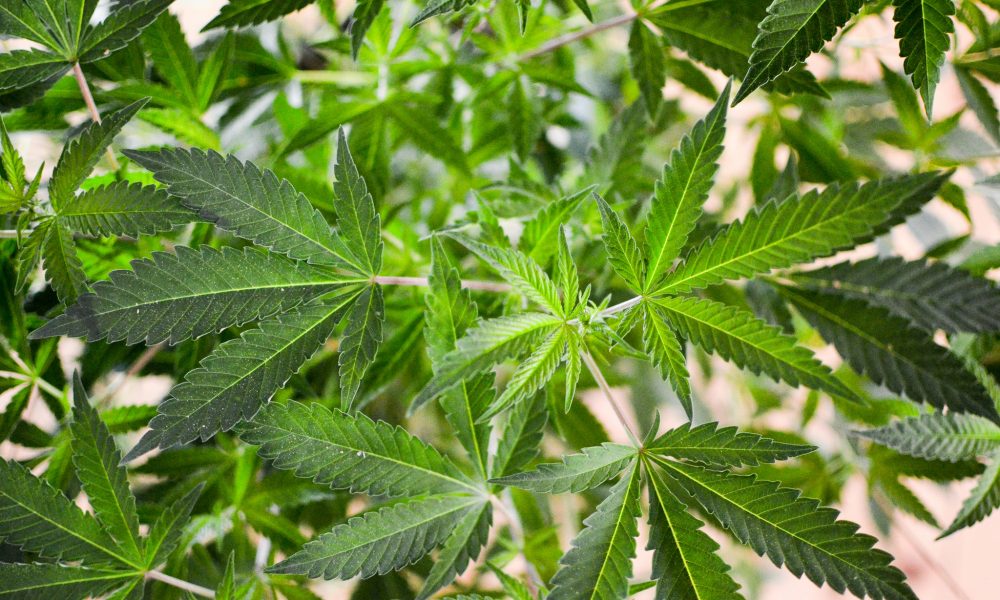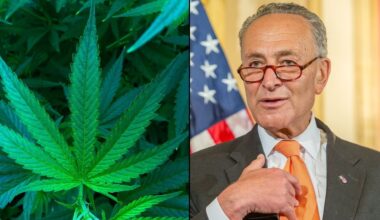West Virginia activists are pursuing a pair of local marijuana decriminalization initiatives for the November ballot, including in the state capital of Charleston.
While the progressive organization West Virginia Can’t Wait typically works on electoral politics by supporting candidates who embrace policies that align with its mission, the group’s field director Sarah Hutson told Marijuana Moment in a phone interview that the group “became aware of, in the past year or so, this option to run municipal ballot measures within the state of West Virginia.”
So activists have turned their attention to cannabis reform, crafting and qualifying petitions to place decriminalization initiatives on local ballots in Charleston and Fairmont for the November election.
The initiatives wouldn’t fully remove marijuana bans from city statutes. It would still be considered a misdemeanor offense to possess limited amounts of cannabis, but there would be “no fees for it, no jail time and no court fees.”
The plan is to turn in signatures by mid-July for the first two target cities, Hutson said, though she added that organizers may work to qualify cannabis measures in additional West Virginia municipalities in future elections.
“The response has been great,” she said. “The average, I think, is if you ask 50 people to sign, like 49 are going to say yes. And one person out of those 50 might say no.”
So far, the campaign has collected more than 1,000 signatures in Charleston, meaning they’re about halfway there to qualifying.
—
Marijuana Moment is already tracking more than 1,000 cannabis, psychedelics and drug policy bills in state legislatures and Congress this year. Patreon supporters pledging at least $25/month get access to our interactive maps, charts and hearing calendar so they don’t miss any developments.![]()
Learn more about our marijuana bill tracker and become a supporter on Patreon to get access.
—
They just recently started signature gathering in Fairmont, where petitions were approved about two weeks ago. In terms of volunteers, Hutson said they have about 20 to 30 working in Charleston, and 10 in Fairmont.
“We are collecting signatures we can count on. It’s just a matter of how many people you have there to collect them, because people are so excited by it and really interested in seeing cannabis decriminalized,” she said. “The current government in West Virginia does not reflect the overwhelming will of the people, which is that folks shouldn’t be going to jail for cannabis possession. So it’s been really amazing and easy to collect signatures—really, it’s just a matter of getting folks out there with clipboards.”
The proposal that West Virginia Can’t Wait is pushing is partly informed by decriminalization measures that have been placed before Ohio voters in past local elections, and the campaign has had help from the Ohio-based Sensible Movement Coalition (SMC) in drafting language and dealing with legal complications.
SMC attempted to branch out from Ohio and get local decriminalization initiatives passed in four cities in neighboring West Virginia last year: Clarksburg, McMechen, Salem and Wheeling, but those efforts didn’t come to fruition. In 2019, Salem voters rejected a similar reform proposal at the ballot that SMC’s West Virginia affiliate spearheaded.
West Virginia Can’t Wait feels that, based on their early results, things will play out differently in the key cities they’re focused on this cycle.
In addition to hoping that the marijuana reforms themselves are enacted, the group also believes that having cannabis on the ballot could help elect more progressive candidates by helping to boost turnout from voters who otherwise might not go to the polls in the upcoming election.
“We are an electoral organization at heart,” Hutson said. “And while we love this—I think it’s a great method of direct democracy, and really, there’s a ton of research to indicate that it increases voter turnout especially in a midterm year like 2022—we also run candidates alongside these ballot initiatives to say, ‘If you care about cannabis decriminalization in your city, be sure you also vote for these candidates who are going to support it.’”
In 2020, WV Can’t Wait supported a group of state legislative candidates that ran on a cannabis reform platform.
Progressive organizers in Texas are also working to place local marijuana decriminalization initiatives on ballots across that state this year.
Meanwhile, in West Virginia, although the governor isn’t personally a fan of marijuana legalization, he said on a couple occasions last year that he’d support the reform if the legislature sent a bill to his desk.
Photo courtesy of Philip Steffan.
Medical Disclaimer:
The information provided in these blog posts is intended for general informational and educational purposes only. It is not a substitute for professional medical advice, diagnosis, or treatment. Always seek the advice of your physician or other qualified healthcare provider with any questions you may have regarding a medical condition. The use of any information provided in these blog posts is solely at your own risk. The authors and the website do not recommend or endorse any specific products, treatments, or procedures mentioned. Reliance on any information in these blog posts is solely at your own discretion.





